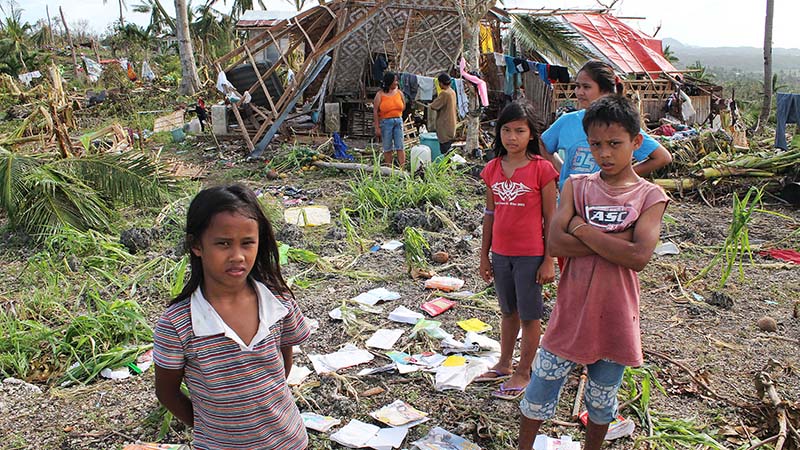Peppered with references to snails and bamboos, the Philippine environment secretary’s speech at the UN Climate Change talks on 16 Nov has raised concerns that it obscured the country’s call for more ambitious and urgent global climate action.
Secretary Gina Lopez said at the high-level segment of the 22nd Conference of Parties (COP22) that failure to limit the global average temperature to 1.5C can lead to the destruction of the country’s “3,000 species of marine life,” one of which is snails.
“This is not just the wealth of the Philippines – it is the wealth of all of us together,” she stressed, specifying endemic species such as a snail, whose “venom has been found by a Nobel laureate to be better than morphine in addressing pain without the side effects.”
It’s an example that showcased the country’s marine biodiversity, but not all in the delegation are sure that it captured the gravity of the impacts of climate change on the Philippines, one of the countries most vulnerable to strong storms and drought.
ICYM – China minister confirms Beijing is not behind climate ‘hoax’ https://t.co/85sxpXY5Ro #COP22 pic.twitter.com/Y04ceubYBC
— Climate Home News (@ClimateHome) November 17, 2016
Sources, who asked not to be named, said there were recommendations to also highlight other areas of vulnerability, but the secretary was “insistent” that biodiversity be the focus. “We are the center of biodiversity,” she told Climate Home, hence the emphasis on this issue.
Aside from snails, Lopez added that the country also has “sponges and shells” that “are effective in addressing cancer.”
Lopez also raised in the plenary that mangroves, which serve as sea walls and are also breeding and nursery grounds for marine animals, will be planted to help minimize damage to properties.
“This thrust will not only save our islands but will result in economic zones because of the resultant increase in fish, shrimps, and other sea life.”
Observations were raised in the delegation though that the fixation on planting mangroves sidelines the fact that climate change adaptation and mitigation requires collective action of all countries. Even if the Philippines plants mangroves all over the country, it will not be enough “to save the planet,” a delegate pointed out.
A negotiator also raised questions on the credibility of the statement made on bamboos sequestering emissions. Lopez said to help the country’s mitigation efforts, she said Filipinos will plant bamboos which are “superb in carbon sequestration.”
One delegate pointed out that this has not been scientifically proven.
In an article on National Geographic in March this year, EJ Zachariah, a researcher at the National Centre for Earth Science Studies in India said that bamboos actually appear to emit significant amounts of carbon due to incomplete photosynthesis.
Climate Home tried to get the secretary’s comment on these issues but did not receive any response from her before publication.
While the secretary’s statement left some delegates scratching their heads, it was commended though by civil society organizations.
“Our biodiversity, our livelihood and the survival of our families and future generations are indeed at stake,” said Gerry Arances, convenor of the Center for Energy, Ecology and Development. “Which is why we need a deal which drastically changes the playing field in order to realize the 1.5 degree target,” he stated.
Sanlakas Secretary General Aaron Pedrosa also lauded Lopez’s call for other countries to raise their mitigation targets so that the global temperature can be capped to 1.5 degrees Celsius.
“The statement of Sec. Lopez against the ‘indecisive ambiguity’ of the Paris Agreement is welcomed as at present, the aggregated contributions of countries across the globe are set to increase global temperature to 3 to 6 degrees Celsius,” said Pedrosa.
Purple Romero’s travel and accommodation in Marrakech was paid by a grant by the Climate Change Media Partnership (CCMP)
